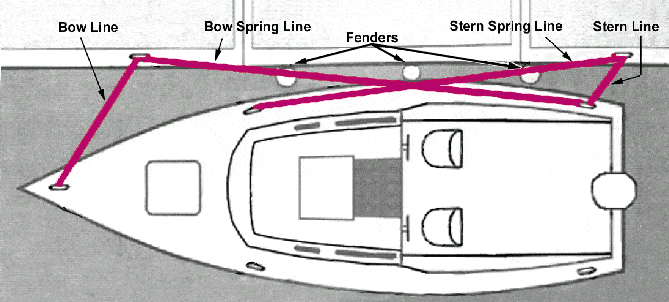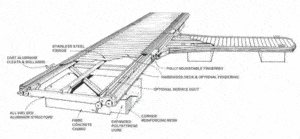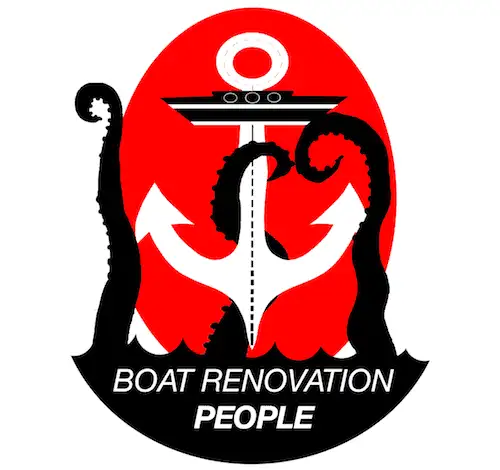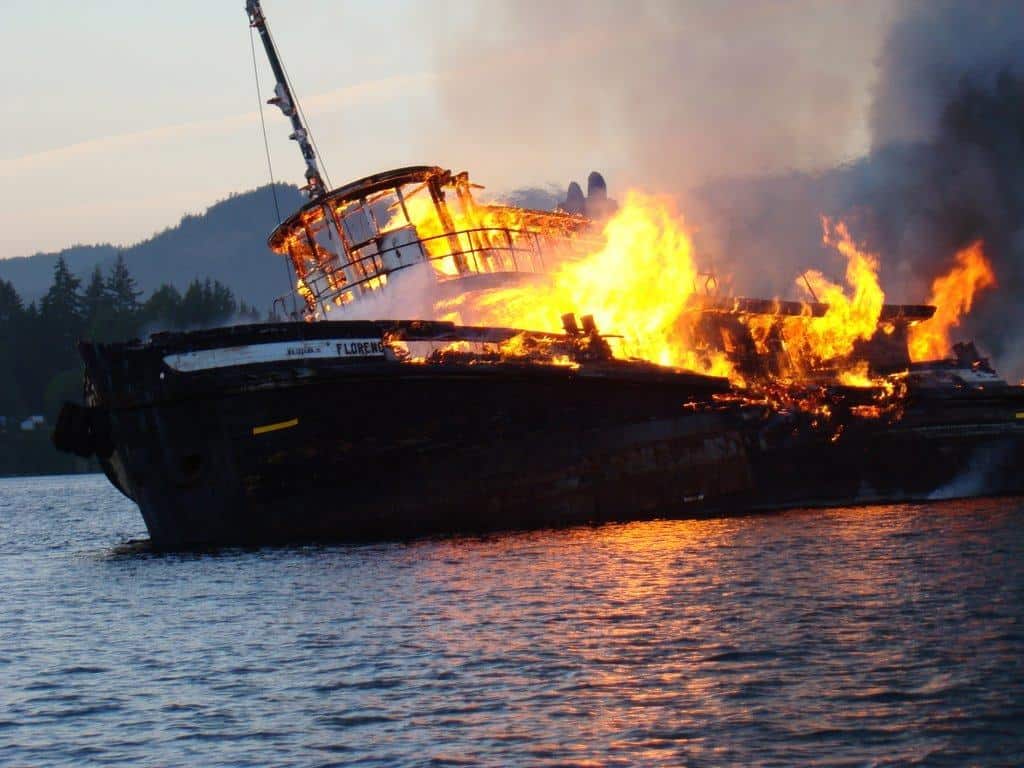Table of Contents
Boat Safety – Worried About Sleeping In A Floating Time Bomb ?
The first few weeks of living aboard a boat are always strange. It is in this time that you begin to adapt to your new surroundings, whilst still missing your home comforts. Don’t get me wrong; nothing beats a hot bath after a long and hard days work, but as long as the pros of living on a boat outweigh the cons then you will remain happy. For me personally one of the main issues that came into play whilst beginning my journey into liveaboard life, was boat safety. When you are first living on a boat you find that you worry about all the elements that you have no knowledge on.
Here is a list of questions that ran through my head and caused many nights of restless sleep along with some short mind settlers.
Will My Ropes Snap In High Winds ?

It’s unlikely your lines will snap unless they’re over tight, have wearing from rough points of contact or are too thin for purpose. Most marine ropes are made up of intertwined layers meaning that if one strand broke you’d still have 3 or more others. The larger the rope the more strands. There isn’t usually a constant strain on your lines especially if you have used the correct mooring method such as spring lines. If you’ve checked your lines for wear and are using the correct strength rope then there shouldn’t be a weak point for your lines to break. If you’re a paranoid android like myself, then you can set up two backup lines that would come into play if your spring lines miraculously snap. These should be looser then your spring lines.
Will My Boat Come Loose In The Night?

As we have previously stated your boat is unlikely to come loose unless your ropes are frayed or perhaps your deck hardware has worked its way loose. Still it’s unlikely; in two years our boat came loose once. This was because the marina had failed to maintain a bracket which supported the finger pontoon we were moored on. In high wind the metal had snapped meaning that the finger which comes off the main pontoon (with our boat attached) was now partially floating around freely! Luckily we had been at the pub until 2am and somehow managed to find this more amusing then anxiety provoking!
Can An Overflowing Toilet Sink My Home?
Most marine toilets have been built so they can’t backflow both in marina or at sea. As well as this the toilet will be above the water line. The main concern with a marine toilet is the inlet and outlet which allows waste to be pumped out of the boat (and sea water in). The pipes that lead from the toilet to the stopcock need to be watertight and secured with at least two stainless steel jubilee clips on each joint. As long as you have good quality waste piping in conjunction with two jubilee clips on each joint then you can rest easy.
Is There A Gas Leak?

Boat safety rule number one; gas and electricity shouldn’t be messed with. But provided you take some sensible steps with prior knowledge and later experience, it should become something you no longer need to worry about. You can’t afford to get it wrong and learn from experience as a mistake normally involves some kind of explosion or potentially death. You can call a certified marine gas engineer or you can carry out some basic checks yourself. Use a gas leak finder spray like the one here on any gas pipe joint you can find. Washing up liquid water solution spread over the joints can also work well, however a spray suited for this purpose will give better results. Once you’ve done this buy a hand gas sniffer such as this Honeywell unit, and go over all of of your joints again. You can also add a wired gas alarm into your bilge which runs of either your 240v mains or a 12v battery, which will also help to ease the mind. Worn and damaged gas pipes can be evaluated yourself but have a engineer inspect and reinstall if necessary.
Will I Get Carbon Monoxide Poisoning From Cooking Inside?

Not if you use common sense. The first rule of cooking or any use of an open flame in a confined space is ventilation; never cook without ventilation no matter how cold, hungry or stupid you are. There are also other carbon monoxide sources such as unventilated engines or any other element which burns organic compounds.
Have a well-branded carbon monoxide alarm / smoke alarm such as Kiddle and make sure it is installed in the correct part of the boat (and follows the manufacturer’s instruction). Have one in each section of the boat – it can only pay to be cautious and your life is worth more than £15!
Will A Marine Water Heater Overheat If I leave It On Overnight?
Marine Calorifiers should have some kind of thermostat protection that cuts out if the water begins to overheat or if the the tank is dry. But this is not always the case, so if you’re not sure check the manufacturer’s specification. If that fails ask your neighbour or the electrician on the boat next door (the one that owes you a favor)! For a last resort ask someone in a local chandlery or store which sells marine water heaters. If in doubt limit use to when you awake and on the boat only.
What If There Was A Fire On The Boat?
From the minute you step foot on your boat you should begin your boat safety fire plan. Know where your fire extinguishers are kept and if they are not easily accessible then make them easy to grab! If you don’t have them onboard, look on amazon for a set of portable fire extinguishers. Make sure you also have a fire blanket in the galley. You need to know where your exits are- if you have a hatch, can you open it quickly? In the dark? With your bum on fire? Like living in a house you need to know where your routes are, if your alarms are working and if you have the capability to fight a basic fire. Nail these steps and you can have a much better nights sleep knowing you’re not going to up in smoke.
Is One Of Those Giant Cargo Ships In The Port Going To Vier Of Course And Plow Straight Through My Boat Like A Knife Through Butter? (Okay maybe I’m catastrophizing slightly.)

